August 31, 2021
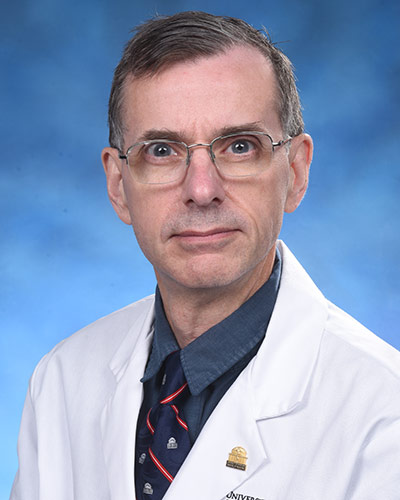 Longstanding Faculty Member Has Played Major Role in Department’s Success Over Past 25 Years
Longstanding Faculty Member Has Played Major Role in Department’s Success Over Past 25 Years
Asaf Keller, PhD, Professor and Chair of Anatomy and Neurobiology at the University of Maryland School of Medicine (UMSOM), along with UMSOM Dean E. Albert Reece, MD, PhD, MBA, announced that award-winning educator Adam Puche, PhD, Professor of Anatomy and Neurobiology, has been appointed to serve as the inaugural Vice Chair of that department, effective immediately.
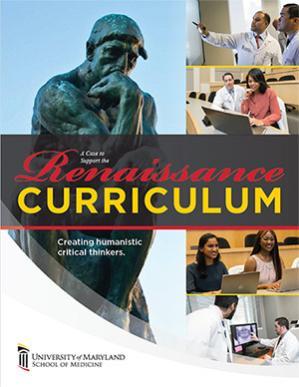 Dr. Puche is widely known across the UMSOM. He is regarded as a legendary professor among UMSOM medical students and alumni for his longtime teaching of “Structure and Development,” the foundational first-year medical school course covering gross anatomy, histology, and embryology studies.
Dr. Puche is widely known across the UMSOM. He is regarded as a legendary professor among UMSOM medical students and alumni for his longtime teaching of “Structure and Development,” the foundational first-year medical school course covering gross anatomy, histology, and embryology studies.
As Vice Chair, Dr. Puche’s responsibilities include managing and executing the school’s teaching mission of anatomy education in the new Renaissance Curriculum to first, second, and fourth-year MD students. He also assists Dr. Keller in administration and managing space and resources for the department’s dozen or so research labs.
Dr. Puche has been a member of the department for the last 25 years, first as a postdoctoral fellow and then as a faculty member.
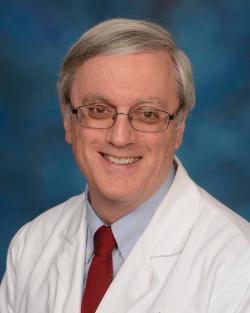 He began teaching anatomy education to UMSOM medical students approximately 12 years ago. Dr. Puche was a recipient of the 2020 University of Maryland School of Medicine Golden Apple given by the graduating medical Class of 2020 and was inducted into the Pass and Susel Academy of Teaching Excellence. He was also a recipient of the 2019 University System of Maryland Regents’ Faculty Award for Excellence in Teaching. The award is the highest honor that the university’s Board of Regents bestows in recognizing exemplary faculty achievement.
He began teaching anatomy education to UMSOM medical students approximately 12 years ago. Dr. Puche was a recipient of the 2020 University of Maryland School of Medicine Golden Apple given by the graduating medical Class of 2020 and was inducted into the Pass and Susel Academy of Teaching Excellence. He was also a recipient of the 2019 University System of Maryland Regents’ Faculty Award for Excellence in Teaching. The award is the highest honor that the university’s Board of Regents bestows in recognizing exemplary faculty achievement.
Dr. Puche runs his own extramurally funded research laboratory with several areas of focus. In particular, his team investigates the brain circuitry behind the sense of smell. One recent study looks at why the ability of smell diminishes prior to the onset of diseases like Parkinson’s and Alzheimer’s, suggesting that the olfactory system is a sensitive region that can indicate early brain dysfunction.
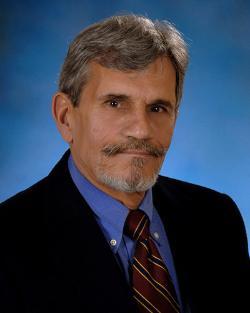 With Samuel Tisherman, MD, Professor of Surgery at UMSOM, Dr. Puche is collaborating on an investigation to confirm that surgeons engaging in last-minute study sessions can improve surgical performance and reduce error rates by half. Another project involves infrared imaging to study the body’s heat regulation during aging, with the ultimate goal of finding a better way to treat hot flashes in women during menopause.
With Samuel Tisherman, MD, Professor of Surgery at UMSOM, Dr. Puche is collaborating on an investigation to confirm that surgeons engaging in last-minute study sessions can improve surgical performance and reduce error rates by half. Another project involves infrared imaging to study the body’s heat regulation during aging, with the ultimate goal of finding a better way to treat hot flashes in women during menopause.
Dr. Puche serves on the Committee on Appointments, Promotion, and Tenure for the Department. He also serves as the Acting Chair of the Maryland State Anatomy Board, as well as the Director of Operations under the Maryland Mass Fatality Plan, whose task is to manage unexpected fatality levels, and to prevent the mass discarding of bodies.
 Dr. Puche received his PhD from the Department of Anatomy and Cell Biology at the University of Melbourne in Australia. He went on to do a postdoctoral fellowship with Michael T. Shipley, PhD, formerly the Donald E. Wilson, MD, MACP Distinguished Professor, and Chair of the Department of Anatomy & Neurobiology at UMSOM.
Dr. Puche received his PhD from the Department of Anatomy and Cell Biology at the University of Melbourne in Australia. He went on to do a postdoctoral fellowship with Michael T. Shipley, PhD, formerly the Donald E. Wilson, MD, MACP Distinguished Professor, and Chair of the Department of Anatomy & Neurobiology at UMSOM.
“For many years, Dr. Puche has volunteered to take on many critical tasks, especially in our education and administration mission. His involvement is above and beyond that of any other faculty member,” said Dr. Keller. “This appointment will formalize his many contributions, and will also serve as an appropriate recognition of our appreciation of these contributions.”
Dean Reece, who is also Executive Vice President for Medical Affairs, UM Baltimore, and the John Z. and Akiko K. Bowers Distinguished Professor at UMSOM, added, “Dr. Puche has been a highly valuable, longstanding member of the Department of Anatomy and Neurobiology’s faculty, and is one of the most highly-respected academicians at the UMSOM. He will continue to add even greater value as Vice Chair of the Department.”
About the University of Maryland School of Medicine
Now in its third century, the University of Maryland School of Medicine was chartered in 1807 as the first public medical school in the United States. It continues today as one of the fastest growing, top-tier biomedical research enterprises in the world -- with 46 academic departments, centers, institutes, and programs, and a faculty of more than 3,000 physicians, scientists, and allied health professionals, including members of the National Academy of Medicine and the National Academy of Sciences, and a distinguished two-time winner of the Albert E. Lasker Award in Medical Research. With an operating budget of more than $1.2 billion, the School of Medicine works closely in partnership with the University of Maryland Medical Center and Medical System to provide research-intensive, academic and clinically based care for nearly 2 million patients each year. The School of Medicine has nearly $600 million in extramural funding, with most of its academic departments highly ranked among all medical schools in the nation in research funding. As one of the seven professional schools that make up the University of Maryland, Baltimore campus, the School of Medicine has a total population of nearly 9,000 faculty and staff, including 2,500 students, trainees, residents, and fellows. The combined School of Medicine and Medical System (“University of Maryland Medicine”) has an annual budget of over $6 billion and an economic impact of nearly $20 billion on the state and local community. The School of Medicine, which ranks as the 8th highest among public medical schools in research productivity (according to the Association of American Medical Colleges profile) is an innovator in translational medicine, with 606 active patents and 52 start-up companies. In the latest U.S. News & World Report ranking of the Best Medical Schools, published in 2021, the UM School of Medicine is ranked #9 among the 92 public medical schools in the U.S., and in the top 15 percent (#27) of all 192 public and private U.S. medical schools. The School of Medicine works locally, nationally, and globally, with research and treatment facilities in 36 countries around the world. Visit medschool.umaryland.edu
Contact
Office of Public Affairs
655 West Baltimore Street
Bressler Research Building 14-002
Baltimore, Maryland 21201-1559
Contact Media Relations
(410) 706-5260
Related stories
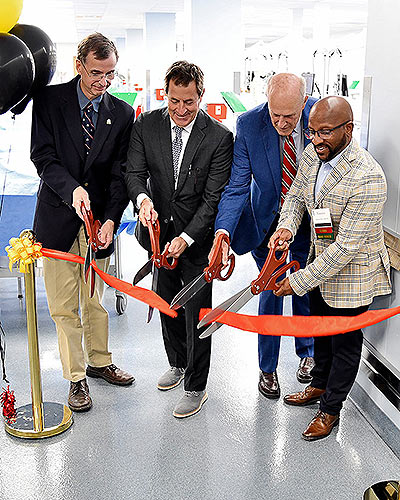
Monday, October 28, 2024
UMSOM Unveils New State-of-the-Art Anatomy Facility
The University of Maryland School of Medicine unveiled at an Oct. 8 ribbon-cutting ceremony the newly renovated Maurice N. Reid, MD ’99 Anatomy Teaching Facility, a state-of-the-art gross anatomy laboratory and learning facility made possible in part by a $1 million donation by UMSOM alum Maurice Reid, MD, a Board of Visitors member and former CEO and medical director of ExpressCare UrgentCare Centers.
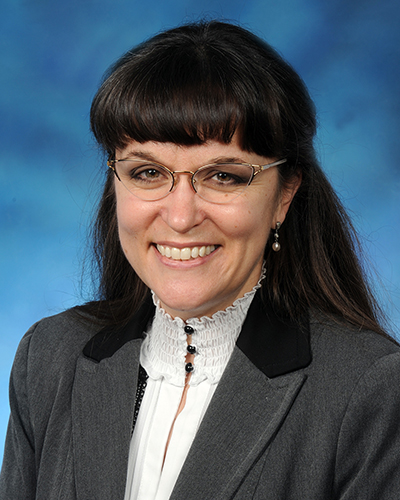
Thursday, September 08, 2022
How Memory of Personal Interactions Declines with Age
One of the most upsetting aspects of age-related memory decline is not being able to remember the face that accompanies the name of a person you just talked with hours earlier. While researchers don’t understand why this dysfunction occurs, a new study conducted at University of Maryland School of Medicine (UMSOM) has provided some important new clues. The study was published on September 8 in Aging Cell.
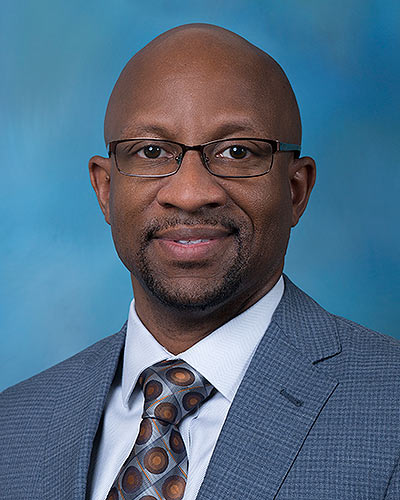
Wednesday, June 29, 2022
UM School of Medicine to Expand Innovative Medical Education Spaces with Gift from Entrepreneurial Leader and Alumnus Maurice N. Reid, MD ’99
University of Maryland School of Medicine (UMSOM) Dean E. Albert Reece, MD, PhD, MBA, announced today that UMSOM will receive a new $1 million gift from Maurice N. Reid, MD ’99, CEO and Medical Director, ExpressCare Urgent Care Centers, bringing his total giving to nearly $2.2 million. Dr. Reid, who has been a longtime supporter the School’s initiatives, is a proud School of Medicine alumnus and member of the Dean’s Board of Visitors.

Tuesday, August 31, 2021
Do Genetics Control Who Our Friends Are? It Seems So with Mice
Have you ever met someone you instantly liked, or at other times, someone who you knew immediately that you did not want to be friends with, although you did not know why?
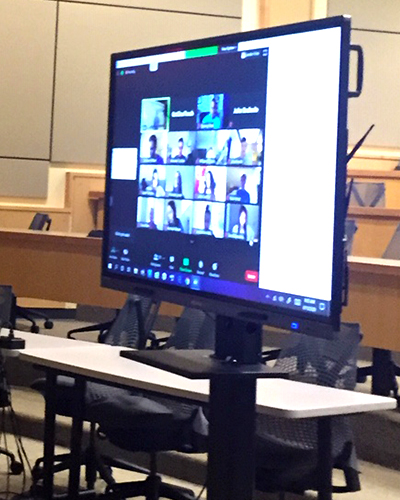
Monday, August 10, 2020
A New Era in Medical Student Training Begins
The new Renaissance Curriculum for medical students at the University of Maryland School of Medicine officially launched at 8 am on Monday, August 10, with a teleconferenced lecture to students by Adam C. Puche, PhD, Professor of Anatomy and Neurobiology.
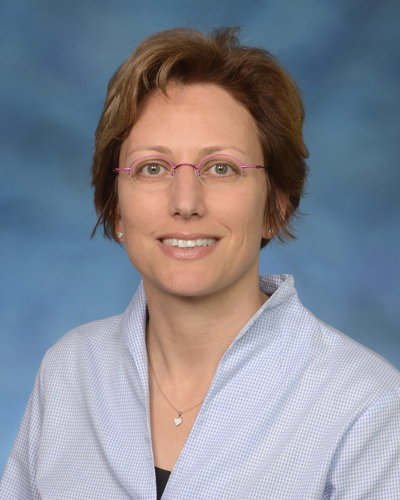
Wednesday, November 21, 2018
UMSOM Expert Discovers Key Gene in Cells Associated with Age-Related Hearing Loss
An international group of researchers, led by Ronna Hertzano, MD, PhD, Associate Professor, Department of Otorhinolaryngology-Head & Neck Surgery, Anatomy and Neurobiology, at the University of Maryland School of Medicine (UMSOM), and Michael Bowl, Ph.D., Programme Leader Track Scientist, Mammalian Genetics Unit, MRC Harwell Institute, UK, have identified the gene that acts as a key regulator for special cells needed in hearing.
